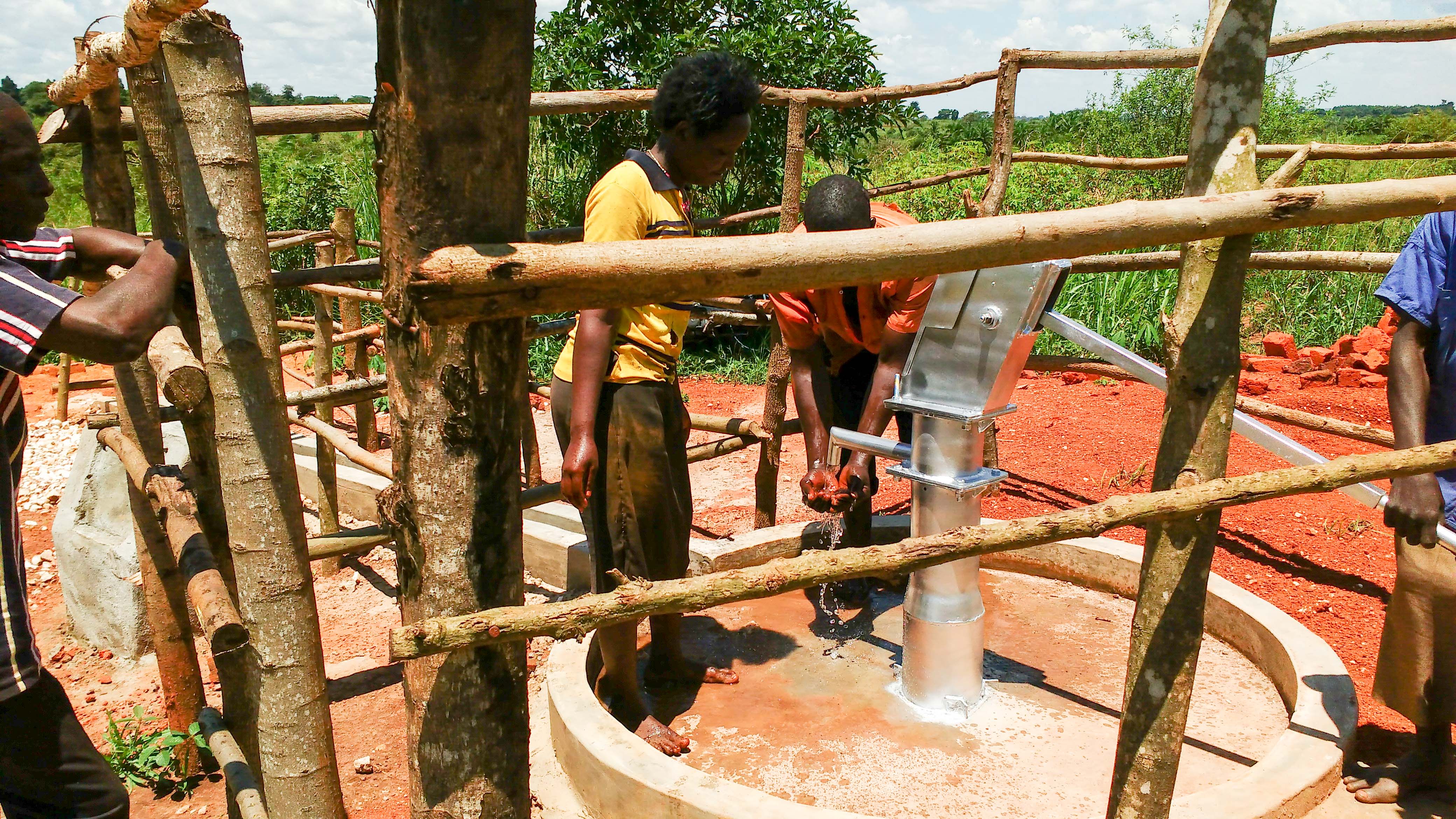The well in this part of Pakanyi Community does not work. Since it broke down people travel a long distance in search of clean water. Some people could not afford to move the long distances and could end up consuming contaminated water from the open water source.

There are other water points, but this village of more than 1,000 people with two schools is struggling to supply enough safe water to everyone. At best, a single water point serves up to 350 people. There are frequent cases of waterborne illnesses among the community as a result.
Fewer than half of homes do not have latrines. This being a town center, many people are aware of the sanitation aspects and the importance of good sanitation. However, most of them are just stubborn and do not want to comply in as far as improving their household sanitation is concerned.
It should be noted however that there is a considerable number of families appreciating the importance of hygiene and sanitation as reflected by their efforts to have the basics. Though there is a fraction of those still struggling to have total household sanitation coverage.
Most people here are small-scale farmers. In the dry season, people prepare their fields to plant in advance of the rains. They go to gardens and return around midday when the sun is hot.
The women then prepare lunch for themselves and children who come back home from school to eat. Thereafter the men tend to go to town for social activities and the women remain home for household chores until 5pm when the children are let out of school for the day.
During planting season both parents return to the garden in the afternoons to weed and take care of their crops.
There are also others who deal in small businesses like shops, bars, and roadside vending since the area is on the main road to Kiryandongo.
Here’s what we’re going to do about it:
Training
Training’s main objectives are the use of latrines and observing proper hygiene practices since these goals are inherently connected to the provision of clean water. Open defecation, water storage in unclean containers and the absence of hand-washing are all possible contaminants of a household water supply. Each participating village must achieve Open Defecation Free status (defined by one latrine per household), prior to the pump installation for a shallow hand-dug well.
This social program includes the assignment of one Community Development Officer (CDO) to each village. The CDO encourages each household to build an ideal homestead that includes: a latrine, hand-washing facility, a separate structure for animals, rubbish pit and drying rack for dishes.
We also implement the Community Led Total Sanitation (CLTS) approach with each of our village partners. This aims to improve the sanitation and hygiene practices and behaviors of a village. During these sessions, village leaders naturally emerge and push the community to realize that the current practices of individual households – particularly the practice of open defecation– are not only unhealthy but affect the entire village. CLTS facilitates a process in which community members realize the negative consequences of their current water, sanitation and hygiene behaviors and are inspired to take action. Group interactions are frequent motivators for individual households to build latrines, use the latrines and demand that other households do the same.
Rehabilitated Well
Part of the well's lining will be taken apart and rebuilt. Artisans will build a well pad to protect the water from contamination. Mechanics will arrive to install a Consallen pump once the well pad has dried.
Note: The GPS coordinates for this project are not exact. We will have a precise location as soon as the water point construction is finished!
We are also building a new well for the community so that more people can access safe water! Learn more here.
Improved Sanitation
The aim is that all households own an improved latrine. Many households do not use a latrine but use the bush. Due to open defecation, feces are spread all over the village. This leads to waterborne diseases and contamination of groundwater and surface water. Our aim is that the community is able to live a healthy life free of preventable diseases. We endeavor that at the end of our presence in the community, people will have both access to sustainable, clean water and access to sanitation. We have now organized families to form digging groups for latrine construction, and empowered them with tools to use.
This project is a part of our shared program with The Water Trust. Our team is pleased to provide the reports for this project (edited for clarity) thanks to the hard work of our friends in Uganda.

 Protected Dug Well
Protected Dug Well






















